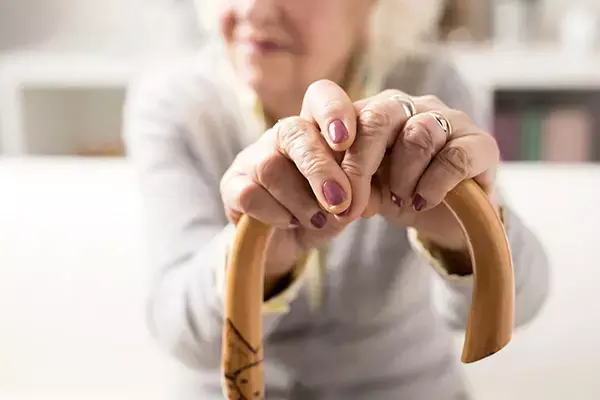- Home
- Medical news & Guidelines
- Anesthesiology
- Cardiology and CTVS
- Critical Care
- Dentistry
- Dermatology
- Diabetes and Endocrinology
- ENT
- Gastroenterology
- Medicine
- Nephrology
- Neurology
- Obstretics-Gynaecology
- Oncology
- Ophthalmology
- Orthopaedics
- Pediatrics-Neonatology
- Psychiatry
- Pulmonology
- Radiology
- Surgery
- Urology
- Laboratory Medicine
- Diet
- Nursing
- Paramedical
- Physiotherapy
- Health news
- Fact Check
- Bone Health Fact Check
- Brain Health Fact Check
- Cancer Related Fact Check
- Child Care Fact Check
- Dental and oral health fact check
- Diabetes and metabolic health fact check
- Diet and Nutrition Fact Check
- Eye and ENT Care Fact Check
- Fitness fact check
- Gut health fact check
- Heart health fact check
- Kidney health fact check
- Medical education fact check
- Men's health fact check
- Respiratory fact check
- Skin and hair care fact check
- Vaccine and Immunization fact check
- Women's health fact check
- AYUSH
- State News
- Andaman and Nicobar Islands
- Andhra Pradesh
- Arunachal Pradesh
- Assam
- Bihar
- Chandigarh
- Chattisgarh
- Dadra and Nagar Haveli
- Daman and Diu
- Delhi
- Goa
- Gujarat
- Haryana
- Himachal Pradesh
- Jammu & Kashmir
- Jharkhand
- Karnataka
- Kerala
- Ladakh
- Lakshadweep
- Madhya Pradesh
- Maharashtra
- Manipur
- Meghalaya
- Mizoram
- Nagaland
- Odisha
- Puducherry
- Punjab
- Rajasthan
- Sikkim
- Tamil Nadu
- Telangana
- Tripura
- Uttar Pradesh
- Uttrakhand
- West Bengal
- Medical Education
- Industry
Antihypertensives may increase risk of Adverse Events among elderly with frailty

A recent retrospective cohort study by James Sheppard and team has found the association of antihypertensives with an increased risk of several serious adverse events, particularly in older individuals with frailty.
The findings were published in Public Library of Science.
The researchers analyzed linked data from 1,256 general practices across England, encompassing a period from 1998 to 2018. The study included patients aged 40 years and above, with systolic blood pressure readings ranging from 130 to 179 mm Hg, who had not previously been prescribed antihypertensive treatment. The primary outcome assessed was hospitalization or death within a 10-year period due to falls.
Of the 3,834,056 patients followed for a median duration of 7.1 years, 12.6% (484,187 patients) were prescribed new antihypertensive treatment in the year leading up to the baseline. The study findings revealed that antihypertensives were associated with an increased risk of several serious adverse events. Specifically, they were linked to a higher risk of hospitalization or death from falls, hypotension, syncope, acute kidney injury, electrolyte abnormalities, and primary care attendance with gout.
However, it is important to note that the absolute risk of experiencing these serious adverse events with antihypertensive treatment was relatively low. The study reported six fall events per 10,000 patients treated per year. Nevertheless, the risk was found to be higher in older patients (between 80 and 89 years old) and those with severe frailty, with 61 and 84 fall events per 10,000 patients treated per year, respectively.
The study's findings remained consistent across different sensitivity analyses, which employed various approaches to address potential confounding factors and consider the competing risk of death. While the analysis provided valuable evidence on the association between antihypertensive treatment and serious adverse events, it is important to acknowledge that the study was observational in nature.
The study demonstrated an association between antihypertensive treatment and serious adverse events, although the absolute risk of harm was relatively low, except for older patients and those with moderate to severe frailty. For these particular populations, alternative approaches to blood pressure management should be considered by physicians, and new antihypertensive treatment may be best avoided.
Source:
Sheppard, J. P., Koshiaris, C., Stevens, R., Lay-Flurrie, S., Banerjee, A., Bellows, B. K., Clegg, A., Hobbs, F. D. R., Payne, R. A., Swain, S., Usher-Smith, J. A., & McManus, R. J. (2023). The association between antihypertensive treatment and serious adverse events by age and frailty: A cohort study. In S. Basu (Ed.), PLOS Medicine. Public Library of Science (PLoS). https://doi.org/10.1371/journal.pmed.1004223
Neuroscience Masters graduate
Jacinthlyn Sylvia, a Neuroscience Master's graduate from Chennai has worked extensively in deciphering the neurobiology of cognition and motor control in aging. She also has spread-out exposure to Neurosurgery from her Bachelor’s. She is currently involved in active Neuro-Oncology research. She is an upcoming neuroscientist with a fiery passion for writing. Her news cover at Medical Dialogues feature recent discoveries and updates from the healthcare and biomedical research fields. She can be reached at editorial@medicaldialogues.in
Dr Kamal Kant Kohli-MBBS, DTCD- a chest specialist with more than 30 years of practice and a flair for writing clinical articles, Dr Kamal Kant Kohli joined Medical Dialogues as a Chief Editor of Medical News. Besides writing articles, as an editor, he proofreads and verifies all the medical content published on Medical Dialogues including those coming from journals, studies,medical conferences,guidelines etc. Email: drkohli@medicaldialogues.in. Contact no. 011-43720751


